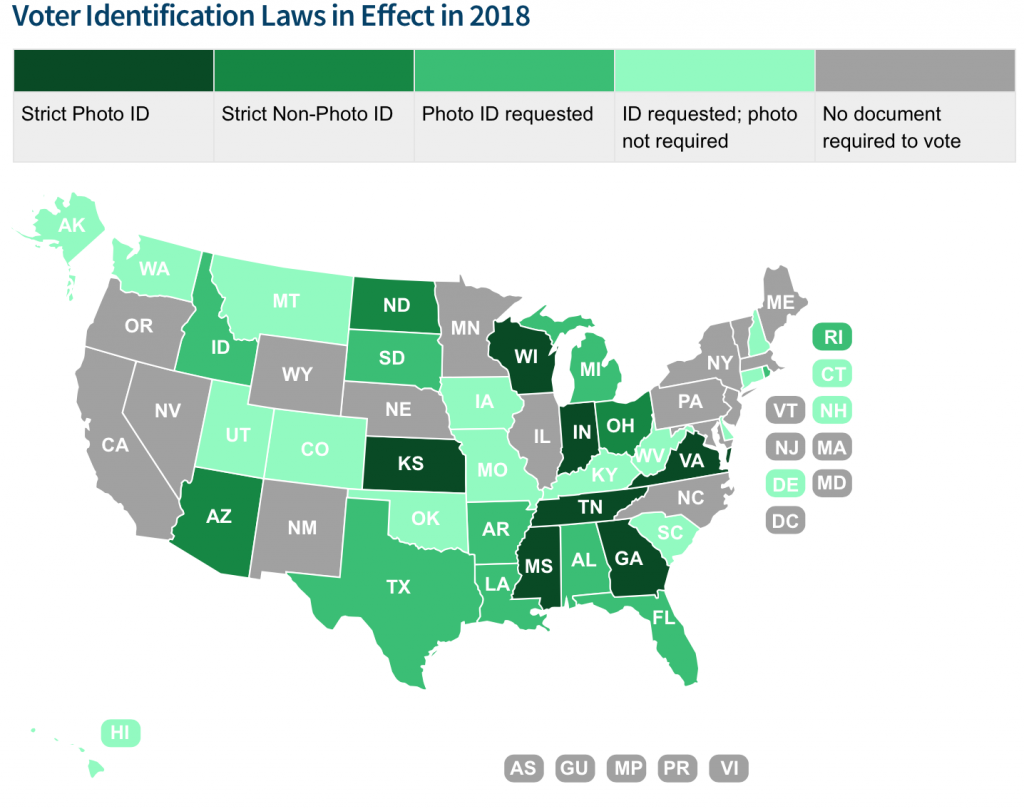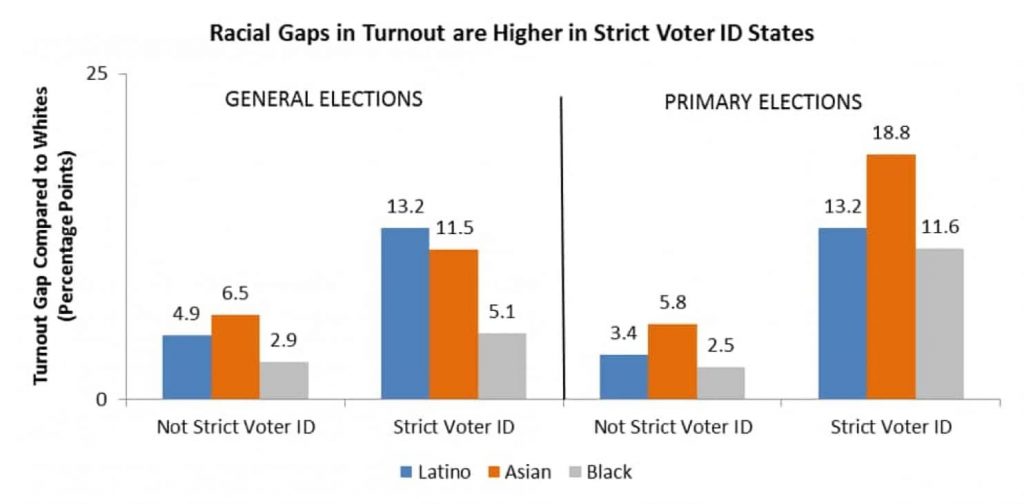Voter ID Laws: Protecting the Integrity of the U.S. Election?
In Ch.10 of the book, the author talks about some of the recent barriers to voting, specifically voter ID laws. In most U.S. states, voters are required to present a form of identification when voting during an election. However, there has been a lot of tension because 18 states currently require voters to have a government issued photo identification when voting in order to deter voter fraud.

People who are against this requirement state that these laws are intended to limit minorities from showing up to polls. The reason for this according to a study done by Barreto, Nuño, and Sanchez, is that minorities have less access to photo I.D.’s. The reason for this is because minorities tend to not have driver’s licenses (the most common form of government identification). The main reason for this is that minorities tend to live in urban areas where people do not need driver’s licenses.

The people who are for voter ID laws believe that these measures will help deter voter fraud. They argue that having a form of government identification will make sure people are not providing a false identity when voting. Furthermore, they argue it will also make sure that the individuals voting are of age, are U.S. citizens, and are residence of a particular state. To get a driver’s license in Virginia, one of the things you will need is a social security number. Therefore, it will automatically omit individuals who are residing in the U.S. illegally from voting.
One of the most interesting findings which has come from the new voter ID laws is alternative ways to determine identification than a government issued ID. Stephen Ansolabehere from Harvard and Eitan Hersh from Tufts determined a way for individuals to use a combination of three out of four unique identifiers as a way to prove identity as accurate as a social security number. By providing three out of four of the following: address, date of birth, gender, and name, there is a 98% match in identification.
Personally, I believe that requiring individuals to show a form of photo identification will help prevent voter fraud. Even though it might be a barrier to vote for some individuals, there is a cost to voting like mentioned in class. Getting a government issued ID is one of these costs. It is a shame that obtaining identification does cost money. However, in order to make sure we are following the requirements to vote, photo identification is a great way to help prevent fraud. Even though Hersh and Ansolabehere have a great potential solution to identification fraud, I am hesitant to incorporate these measures into practice because it is very easy to steal someone’s date of birth, gender, name, and address. However, faking a government photo I.D. which will be checked by a government official is very hard to do successfully.
To conclude, voter identification has been and is going to be a topic which we will see being talked about in the media especially with the midterms coming up. Given the fact that over half of the states require a form of identification and of those, 18 require a form of photo identification. It will be interesting to see the future of voter ID laws and how they will be implemented.
Sources:
https://ballotpedia.org/Voter_identification_laws_by_state
http://stanford.edu/~jgrimmer/comment_final.pdf
http://mattbarreto.com/papers/PS_VoterID.pdf
https://www.wired.com/story/voter-id-law-algorithm/
https://www.dmv.org/va-virginia/id-cards.php
http://www.ncsl.org/research/elections-and-campaigns/voter-id.aspx